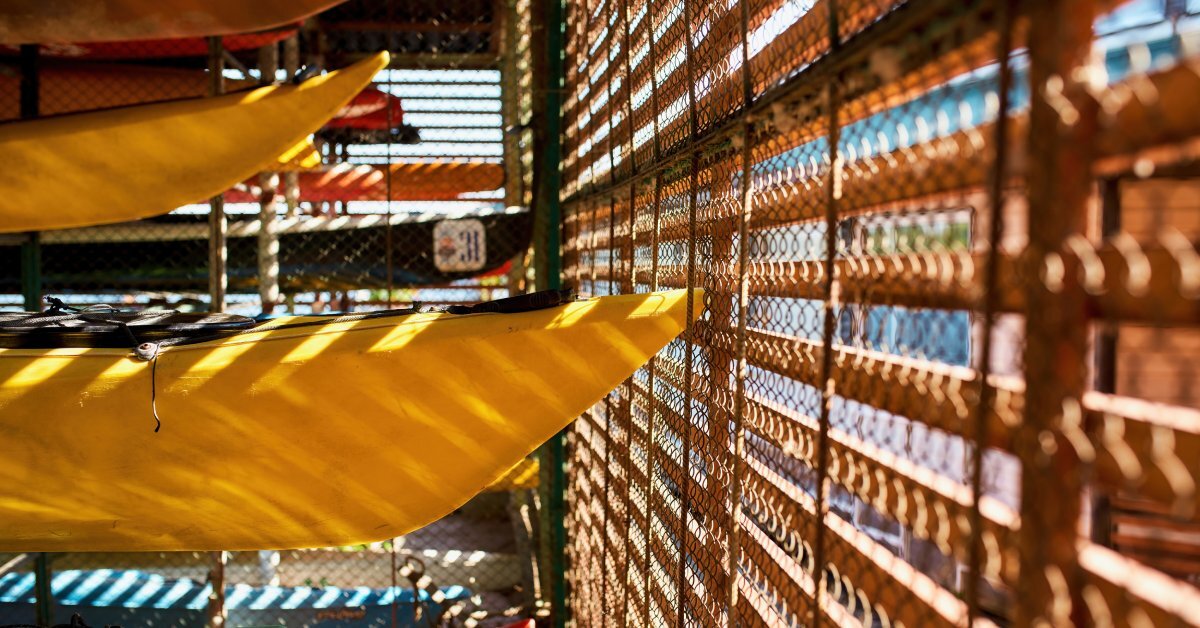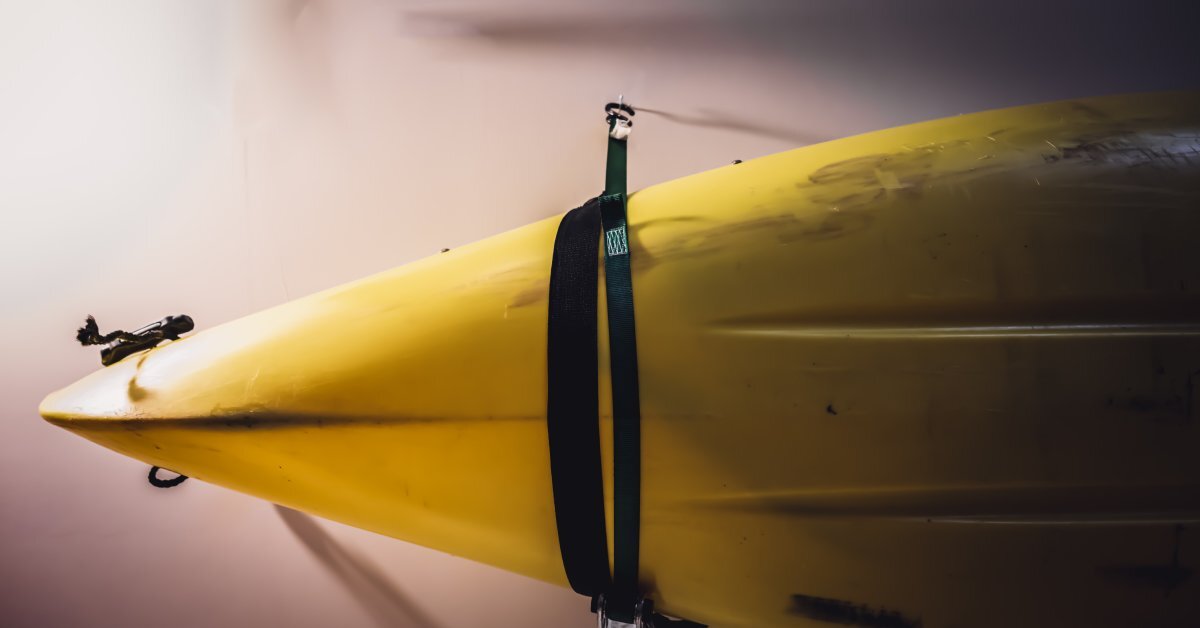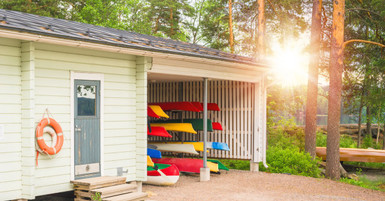Posted by Admin on Nov 12th 2025
The Best Kayak Storage Ideas and Solutions
Your kayak represents freedom on the water through countless adventures across lakes, rivers, and coastal waters. After investing in quality paddling equipment, protecting that investment becomes paramount. The best kayak storage ideas and solutions start with understanding your space limitations and the specialized protection your vessel needs.
Many kayakers struggle with finding adequate storage that protects their watercraft from weather damage, UV exposure, and potential theft. Whether you own a single recreational kayak or multiple specialized vessels, implementing smart storage strategies extends equipment lifespan and saves money on repairs or replacements. This comprehensive overview covers indoor and outdoor storage methods, security considerations, and organization tips that work for any living situation.

Indoor Kayak Storage Solutions
Indoor storage provides maximum protection from environmental elements. Garages, basements, and spare rooms offer controlled environments that prevent weather-related damage.
Wall-Mounted Systems
Wall-mounted systems work exceptionally well for single kayaks. Heavy-duty brackets support kayaks horizontally or vertically, depending on ceiling height and available wall space. Vertical storage requires less floor area while horizontal mounting distributes weight more evenly across support points.
Ceiling Suspension Systems
Ceiling suspension systems maximize floor space by lifting kayaks overhead. Pulley systems allow easy raising and lowering, making solo loading manageable. They work best in garages with adequate ceiling height and structural support beams.
Free-Standing Racks
Free-standing racks accommodate multiple kayaks without permanent installation. These portable solutions work well for renters or those who frequently rearrange storage areas. Look for racks that hold kayaks hull-side down to maintain their shape over time.
Effective Outdoor Storage Strategies
When indoor space isn’t available, outdoor storage requires additional protection measures. Dedicated kayak sheds provide weather protection while remaining accessible for quick launches.
Covered Storage Areas
Covered storage areas like carports or overhangs offer partial protection from rain and snow. Position kayaks to minimize direct sunlight exposure, as UV rays cause plastic and fiberglass degradation over time.
Ground-Level Storage
Ground-level storage works when elevated options aren’t feasible. Use foam blocks or sawhorses to lift kayaks off direct ground contact. This prevents moisture damage and allows air circulation underneath the hull.
Cockpit Covers
Cockpit covers are beneficial for outdoor storage and when transporting a kayak. The protective barriers prevent water accumulation, debris entry, and pest intrusion. Quality covers feature UV-resistant materials and secure attachment systems that withstand wind and weather.
Security Measures for Peace of Mind
Unfortunately, theft happens. Visible, unsecured kayaks attract opportunistic thieves who view them as easy targets.
Cable locks provide basic security when threaded through drain plugs or carry handles. While not foolproof, they deter casual theft and require tools for removal. Choose marine-grade cables that resist corrosion in humid environments.
Kayak storage containers offer both security and weather protection. Lockable storage boxes accommodate paddles, life jackets, and various accessories alongside small kayaks. The containers work particularly well for apartment dwellers with patio storage.
Registration and identification marking help recovery if theft occurs. Engrave or mark kayaks with owner information in multiple locations. Some paddlers use UV-resistant stickers or permanent markers on less visible areas.
Organization Tips for Multiple Kayaks
Families commonly have multiple kayaks on hand, and devoted kayakers are likely to have a variety of different models. With several watercrafts needing to be stored, efficient organization becomes key to accessing vessels without moving others.
Add Labels
Label storage positions clearly to maintain organization. Color-coding or numbering systems help family members return equipment to designated spots. This prevents damage from improper stacking or placement.
Rotate the Kayaks by Usage
Rotate seasonal kayaks based on usage patterns. Store frequently used vessels in easily accessible positions while placing specialty or occasional-use kayaks in less convenient spots. It reduces handling and the likelihood of damage from constant moving.
Establish a Storage Space for Accessories
Create dedicated spaces for accessories and safety equipment. Paddle storage, life jacket hangers, and safety gear organization prevent loss and maintain equipment readiness. Gear keepers help maintain organization both on the water and at home, keeping essential items tethered and easily accessible.
Weather Protection Essentials
Weather exposure causes the most common kayak damage. Sun, rain, snow, and wind all pose threats to different kayak materials and components.
UV protection takes priority in sunny climates. Kayak covers, tarpaulins, or shaded storage prevent plastic bleaching and material degradation. Even short-term outdoor storage benefits from UV protection during peak sun hours.
Water drainage prevents structural damage and pest problems. Position kayaks to shed water naturally, avoiding flat surfaces where water pools. Drain plugs should remain open during storage to prevent pressure buildup from trapped moisture.
Temperature fluctuations affect different materials differently. Plastic kayaks become more brittle in extreme cold, while composite materials may expand and contract with temperature changes. Climate-controlled indoor storage eliminates these concerns entirely.

Seasonal Storage Considerations
Storage needs change throughout the paddling season. Winter storage typically requires more comprehensive protection, while summer storage focuses on convenient access and UV protection.
Prestorage preparation includes thorough cleaning and inspection. Remove all sand, debris, and organic matter that could cause damage or attract pests. Check for cracks, scratches, or other damage that needs attention before long-term storage.
Periodic maintenance checks during storage seasons catch problems early. Monthly inspections reveal pest intrusion, cover damage, or security issues before they become serious problems.
End-of-season storage transitions require systematic approaches. Clean and inspect all equipment, address any needed repairs, and implement long-term storage protection measures. Document storage locations and equipment conditions for spring preparation.
Maximize Your Kayak Storage Solutions
The best kayak storage solutions combine protection, security, and accessibility in ways that fit your specific situation. Whether you choose indoor mounting systems, outdoor sheds, or hybrid approaches, consistent implementation protects your investment and maintains equipment readiness.
Start with your available space and protection needs, then build storage solutions that grow with your paddling passion. Quality storage pays dividends through extended equipment life and maintained resale value.
Shop Yeager’s Sporting Goods
Are you searching for sports equipment in Bellingham? Look no further than Yeager’s Sporting Goods! We offer a wide selection of merchandise, including kayaks and kayak accessories, to make embarking on outdoor activities fun and convenient. Visit our website to shop our incredible products.

